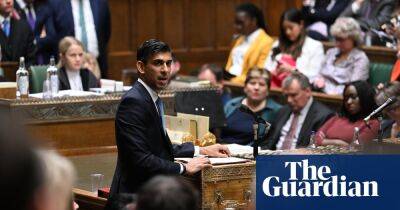Could strikes solve the cost of living crisis for Britain’s workers?
That the UK is a low-strike society and a low-pay economy is no freakish coincidence. In-work poverty is at a record high in large part because working days lost to strikes are at record lows. When unions were smashed by a combination of legislation, defeats and mass unemployment in the 1980s, we lost the most effective means we have to ensure that workers get a fair slice of the pie they make.
That’s why Boris Johnson’s proclamation that work is the best route out of poverty is trolling the nation from the prime ministerial pulpit. Most people living in poverty are in work. He may brag about healthy employment figures, but the fact that they are accompanied by an unprecedented crisis in living standards exposes the inequality baked into our economic model as people’s wages cannot meet the rising inflation in prices.
Millions of workers are deprived of a comfortable existence in large part because organising for better wages and conditions has been made so deliberately difficult. That the Tories are planning to further hobble an already battered labour movement should be understood as yet another assault on workers’ living standards.
In response to the National Union of Rail, Maritime and Transport balloting its members in support of industrial action, ministers are threatening legislation to make effective strikes illegal. The motivation for the proposed action is very straightforward: pay freezes – or, given inflation hit a four-decade high of 9%, a real-terms pay cut – and 2,500 job losses.
Those opposing the action highlight the supposedly exorbitant salaries of train drivers, which range from £20,000 to £65,000. They are the same people, of course, who wail about the “politics of envy” if the booming salaries of
Read more on theguardian.com






















